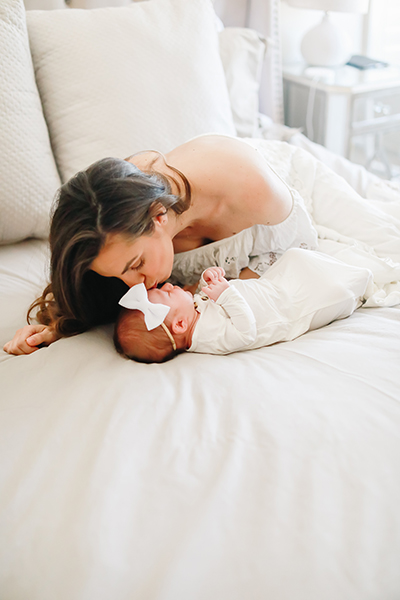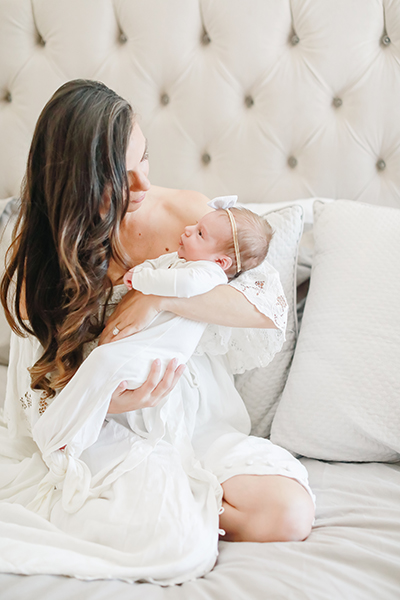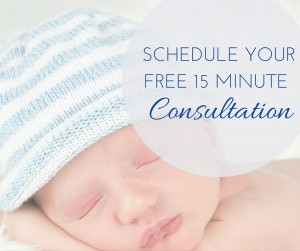Baby Sleep Training Services
Hello! Welcome to Big Sky Lullaby! Here at BSL, we focus on helping families who are facing what seems to be the never ending struggle of sleepless days and nights, by providing professional baby sleep training services. It has become a strong passion of ours to work with families in tough situations, and really help them turn things around!
My Baby Sleep Training Philosophy:
 Many families ask me what my philosophy is regarding baby sleep training methods. The answer is simple; match the method to the family! I have no judgment, nor favoritism over any one method. When working with a family, it is my job to find a method that meets their parenting style, and will help them accomplish their goals.
Many families ask me what my philosophy is regarding baby sleep training methods. The answer is simple; match the method to the family! I have no judgment, nor favoritism over any one method. When working with a family, it is my job to find a method that meets their parenting style, and will help them accomplish their goals.
Believing that sleep consultants only use the Extinction Method (“cry it out”) would be very far from the truth. I hired a consultant for my son 9 years ago because everyone was telling me to just let him “cry it out” and I refused to use that method and/or think there weren’t other options. There are several options, and you just need to find the one that works for your family.
I will get a feel for your parenting style from your intake form, and during our consultation, and I will make a suggestion for a method based on those. Or, we can go through all of the options and pick one together. Also, many parents are surprised to learn that the method is not necessarily “set in stone.” If you choose one and then decide that it isn’t working for your family, we will make a quick switch to a different method, I will send you a quick revision to your plan, and then we just keep going.
I support all methods of baby sleep training, (using safe sleep) and I think that each method will work differently for each family. The most important task is to pick one that you can be consistent with. You will not get anywhere without consistency.
Many families that reach out to me have never heard of a “Child Sleep Consultant” and want to know what exactly I do, why it is so important, and how I get it accomplished. For this reason I have outlined what I consider the best way to answer this question, and to describe what I can do to help your family!
Our Four Core Beliefs:
- We believe that teaching your baby to sleep doesn’t need to be a stressful experience for you or for your child.
- We believe that a well-rested baby is a focused and happy baby, and that a happy baby can change the entire dynamic of a family.
- We believe that sleep deprivation and parenting do not have to be one in the same.
- We believe that if we teach parents how to make sleep a priority, they will be making an investment in their child’s future.
Basic Elements of Sleep
Why is independent sleep important for your baby?
When a child learns how to sleep independently and develops the ability to connect sleep cycles on their own, deep sleep and restorative levels of sleep are created. Restorative sleep is essential for cognitive development. If a child never has consolidated, restorative sleep, they will develop a sleep deficit and will become chronically overtired. As a result of this chronically overtired state, the body starts to produce cortisol, which is the hormone that keeps us awake and gives us energy. When children have elevated levels of cortisol in their body, it makes it increasingly harder for them to settle and self regulate.
What is baby sleep training?
 Baby sleep training is a combination act of creating an environment that is conducive to sleep, controlling the timing of sleep periods, and offering comfort as your child learns to go from awake to asleep while laying in their crib. When we line up all of these elements at the same time and put a solid plan in place, we are able to accomplish the goals which will lead to independent sleep:
Baby sleep training is a combination act of creating an environment that is conducive to sleep, controlling the timing of sleep periods, and offering comfort as your child learns to go from awake to asleep while laying in their crib. When we line up all of these elements at the same time and put a solid plan in place, we are able to accomplish the goals which will lead to independent sleep:
1) Producing natural melatonin.
2) Learning how to connect sleep cycles.
These are the two goals that we need our child’s body to accomplish in order to lengthen their naps and sleep through the night. A child cannot fall asleep on their own unless they are given the opportunity to do so. Each time they practice and transition from one sleep cycle to the next, the better they become at it.
Consistency is Key! There is no point in doing any of it, unless you are doing all of it!!
For example: There is no point in having a perfect sleep schedule and then having a bright light on in your baby’s room. Or, even though you lay your baby down awake for naps, you are still rocking them to sleep at bedtime.
An infant cannot separate in their mind that we want them to fall asleep independently for one sleep period but we are going to help them fall asleep for the following one, this is why we need to be consistent across the board. They need to be presented with 100% consistency when it comes to teaching them what they are capable of. Since we cannot communicate with our infants, it is very important to send consistent messages.
This is also why it is very important to be READY before you begin!
One thing I often notice when reading intake forms is that families usually have one element down well. Whether it is a consistent schedule, a solid bedtime routine, or falling asleep independently for some of their sleep periods. This is great, but it is not going to help us get anywhere unless everything is being addressed at the same time.
Sleep training is not a time to experiment and it is not a time to second guess yourself. The more you test things out and don’t follow through, the harder it is going to be to make significant changes. Some people come to me and just have one element missing, but that goes to show how important each one of them truly is!
The idea of making changes regarding sleep can be overwhelming, especially when you already feel like you are in survival mode. So just take it one step at a time, start with setting up the child’s sleep environment so that it is conducive to sleep. This means that it needs to be completely pitch black, (no night lights) there needs to be white noise, no distractions hanging from the ceiling or anything playing music or lighting up. You want the temperature to be between 66-71 degrees, and use a sleep sack for both day and night sleep if you can.
The brain controls sleep, not the stomach.
An Eat/Sleep Association is the #1 issue that I am presented with when working with families. As new parents, or just parents in general, we tend to think that the more we feed our child, the better they will sleep. We also think this because this is the #1 piece of advice given to us by friends and relatives, unfortunately. The truth is, our stomach does not control sleep, our brain does. As long as your child is doing well on the growth chart and getting in the recommended amount of feeding/ounces per day, then there is every reason to believe they can sleep throughout the night. (Unless a night feeding is still needed, age appropriate, or instructed by your pediatrician!)
Your child must go from awake, to asleep, while lying in their crib.
This is the KEY to baby sleep training! When you rock your child to sleep, hold them to sleep, nurse them to sleep, allow them to fall asleep in their carseat and then get transferred, they are not waking-up, where they fell asleep. When this happens, it startles them. It would be like me going to sleep in my house and waking up in my neighbor’s house. That would be really weird and I would be VERY vocal about it. That is what your child is doing when you put them to sleep, and then place them in their crib afterwards. They almost always wake up crying and almost never connect sleep cycles and fall back to sleep.
So how do we accomplish this? This is when we choose the actual “sleep training method.” A sleep training method is the way you decide to support and comfort your child as they learn how to put themselves to sleep.
Big Sky Lullaby Podcasts

